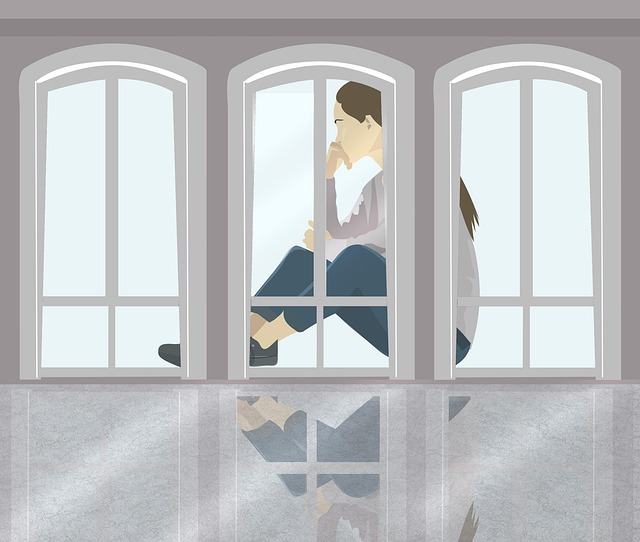Major Depressive Disorder (MDD) is a debilitating mental health condition requiring comprehensive evaluation and personalized depression treatment programs. These programs integrate evidence-based therapies like Cognitive Behavioral Therapy (CBT), Interpersonal Therapy (IPT), and Mindfulness-Based Therapies to address negative thought patterns, improve relationships, and enhance present-moment awareness. A tailored approach combining psychotherapy, medication management, lifestyle adjustments, and support groups is crucial for lasting recovery, with flexible program durations catering to individual needs. Building a strong support network, including family, friends, and online resources, further aids in managing MDD effectively.
Major Depressive Disorder (MDD) is a common yet serious mental health condition impacting millions. Understanding MDD involves recognizing its symptoms, from persistent sadness to loss of interest in activities once enjoyed. Diagnosis requires professional evaluation. This article explores therapy options for MDD, covering cognitive behavioral therapy (CBT), interpersonal therapy, mindfulness practices, and more. We guide you through creating a personalized treatment plan, emphasizing the importance of support systems and resources for long-term recovery from depression.
Understanding Major Depressive Disorder: Symptoms and Diagnosis

Major Depressive Disorder (MDD), commonly known as severe depression, is a mental health condition characterized by persistent feelings of sadness, loss of interest in activities once enjoyed, and a range of physical and cognitive symptoms. It’s more than just feeling sad or blue; MDD significantly impairs an individual’s ability to function in daily life. Symptoms can include persistent sorrow, changes in appetite and sleep patterns, fatigue, difficulty concentrating, feelings of worthlessness or guilt, and recurrent thoughts of death or suicide.
Diagnosing MDD involves a comprehensive evaluation by a qualified healthcare professional. This typically includes a detailed personal history, a physical examination to rule out medical causes, and standardized diagnostic tools like the Diagnostic and Statistical Manual of Mental Disorders (DSM-5). A thorough assessment helps differentiate MDD from other conditions with similar symptoms, ensuring accurate diagnosis and appropriate depression treatment programs are recommended.
Therapy Approaches for Depression: An Overview

Depression treatment programs offer a variety of therapeutic approaches tailored to address the unique needs of individuals struggling with major depressive disorder (MDD). Cognitive Behavioral Therapy (CBT) is a widely recognized and effective method that focuses on identifying and changing negative thought patterns and behaviors contributing to depression. By teaching patients coping strategies and distorting these unhelpful thoughts, CBT empowers them to manage their symptoms more effectively.
Another prominent approach is Interpersonal Therapy (IPT), which emphasizes the exploration of interpersonal relationships and life events as potential triggers for depression. IPT aims to improve communication skills, resolve relationship conflicts, and enhance social support networks, all of which can significantly contribute to recovery. Additionally, Mindfulness-Based Therapies have gained popularity due to their focus on present-moment awareness and non-judgmental acceptance, helping individuals cultivate resilience against depressive episodes. These therapy types, among others, form the backbone of comprehensive depression treatment programs designed to offer holistic support for lasting healing.
Cognitive Behavioral Therapy (CBT): A Step-by-Step Guide

Cognitive Behavioral Therapy (CBT) is a structured and effective approach for managing major depressive disorder. It focuses on identifying and modifying negative thought patterns and behaviors that contribute to depression. The therapy involves several key steps, designed to empower individuals with coping strategies and insights into their emotional well-being.
The initial phase revolves around establishing goals and learning techniques like mindfulness and relaxation exercises. As the process unfolds, CBT helps individuals challenge distorted thinking by examining evidence and alternative perspectives. This step-by-step guide encourages patients to replace negative habits with healthier alternatives, fostering a more positive outlook on life. Through structured conversations and homework assignments, CBT offers a practical framework for navigating and overcoming depression, making it a prominent component of many successful depression treatment programs.
Other Effective Treatment Programs: Interpersonal Therapy, Mindfulness, and More

When exploring depression treatment programs, beyond medication and cognitive behavioral therapy (CBT), several other effective approaches exist. Interpersonal therapy (IPT) is a well-regarded method that focuses on improving relationships and social skills to combat feelings of isolation and loneliness, common symptoms of major depressive disorder. IPT aims to help individuals understand and change negative patterns in their interactions with others, thereby alleviating depression symptoms over time.
Additionally, mindfulness-based therapies have gained prominence as promising depression treatment programs. Mindfulness encourages individuals to stay grounded in the present moment, accept thoughts and feelings without judgment, and develop a deeper awareness of their senses and surroundings. This practice has been shown to reduce symptoms of depression by fostering emotional regulation and promoting a more balanced perspective on negative thoughts and experiences.
Creating a Personalized Depression Treatment Plan

When addressing major depressive disorder, creating a personalized depression treatment plan is essential for effective recovery. This tailored approach considers unique individual needs, symptoms, and preferences. Mental health professionals often collaborate with patients to develop comprehensive strategies that may include a combination of psychotherapy, medication management, lifestyle adjustments, and support groups.
Depression treatment programs can be flexible, ranging from short-term interventions to longer-term therapies. Cognitive behavioral therapy (CBT), for instance, focuses on identifying and changing negative thought patterns. Other evidence-based methods like interpersonal therapy (IPT) target relationship issues while mindfulness-based cognitive therapy (MBCT) teaches present-moment awareness to prevent relapse. By integrating these components into a coherent plan, individuals can effectively manage their symptoms and lead fulfilling lives.
Support Systems and Resources for Long-Term Recovery

Building a robust support system is integral to long-term recovery from major depressive disorder. This can include leaning on family and friends for emotional support, joining support groups where individuals with similar experiences share their journeys, or seeking professional help through depression treatment programs. These programs often combine psychotherapy, medication management, and lifestyle interventions tailored to individual needs.
Online resources also play a significant role in supporting those dealing with depression. Websites, mobile apps, and digital platforms offer access to educational materials, self-help tools, and virtual communities, enabling individuals to manage their symptoms effectively between therapy sessions. Such resources complement traditional depression treatment programs, fostering a comprehensive approach to recovery that addresses both the mind and the digital realm.
